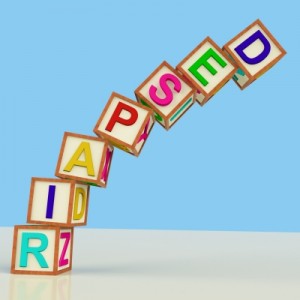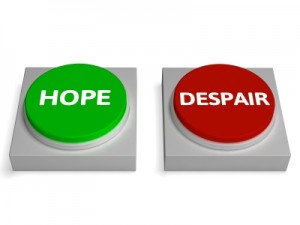Adoptee Triggers: Feeling Excluded ~ 6 Ways to Move Through It
Left out, not part of the in crowd, excluded, ignored … however you want to characterize it. It’s an adoptee trigger, although I imagine even non-adoptees can be sensitive to it.

Photo credit: “Lonely Woman On The Beach” by Sira Anamwong
But recently, I’ve seen adoptees posting on Facebook groups about feeling left out. Not being included in a social activity, a family activity, can be a real trigger—leading to anger, depression, sadness, and more.
It’s so hard to know whether we have an “adoptee issue,” or whether the issue is a result of growing up in our adoptive family, or whether it’s simply a personality trait. I tend to think it goes hand-in-hand. There is the loss inherent in adoption, no doubt. But if it weren’t for adoption, we wouldn’t have grown up with that particular family in the first place. Often, a latent personality trait (being a sensitive person, for example) is simply exacerbated by having been adopted.
Enough with the caveats and clarifications.
Here are some of my very own home-grown solutions, because believe me, I’ve been there.

Don’t despair! Solutions are here!
Photo credit: “Falling Over Despair Block” by Stuart Miles
1. Set inclusivity by example
I like to feel that being proactive (read: hyper-inclusive) sets a good example to my friends and family. Show that you’re willing to invite a new friend to a weekly gathering, that it be fun to get to know new people.
(Be careful about taking this to the extreme. I may have inadvertently had 12 kids aged 3-6 over to my house … because I was afraid of kids feeling left out. It was a bit much in a small apartment.)
2. Did you really want to be included in the first place?
Maybe the activity wasn’t the fun, maybe it didn’t make sense to include you.
If you were excluded, was it really that big of a deal? Would you really have been that excited to have been invited, or would you have not really wanted to go?
The answers to these questions can tell you whether you should make a big deal out of the issue, or let it slide.
3. Don’t let yourself devolve into passive aggression
<<< Points to self. >>>
That feeling of being left out makes my negative thought processes kick into overdrive sometimes.
Seriously, all it takes is to see some #throwbackthursday or #flashbackfriday pictures on Facebook to put me in a tailspin. I see my first family enjoying holiday that I missed, because yeah, I was being raised by a whole different family. It’s tough, but you have to buck up and accept reality. Well, that’s what I tell myself, at least.
I find that if I recognize it for what it is: sadness at a loss, but that the photos are meant to be fun and funny, I feel better. No, it’s not a jab thrown at me to say: Ha ha! Look at the fun times you missed out on!
Not everything is about me. [Rinse and repeat, or better yet, maybe I'll write it on my hand.]
Acting with passive aggression means we don’t feel we have the right to stand up for ourselves. We avoid conflict at all costs, but at the biggest cost is to ourselves.
4. Alternately: Put yourself out there
Just because you feel left out, doesn’t mean you have to retreat, wallow and be all alone.
Post some fabulous jealousy-inducing photos of your own! Take a picture of your husband, boyfriend, kids or pet and put a caption that says: no need for “throw-backs,” I’ve got a party in my house right now!
If you don’t have any, make a funny or beautiful meme with a pretty landscape background and post something about feeling comfortable in your own skin.
Not taking everything personally goes hand-in-hand with stepping up to the plate that is your life. It’s YOUR life; no one should have the power to make you feel like you should be left out of it.
5. Step out of your comfort zone, demand respect.
Here’s an “adoptee thing” for you. Early on in life, we were thrown into the BIGGEST risk of all: we were given to a different, strange family. Without any say. That’s a HUGE risk, and it was made without our consent or real conscious knowledge.
That can make any adoptee either risk-adverse, or prone to risky behavior. Depends on the person. Nevertheless, we must be aware of it.
For the risk-adverse, stepping out of our comfort zones, putting ourselves out there can be huge. Terrifying. But, remember that good old’ adoptee resilience? Yeah, you’ve got it; use it.
Teach others how you want to be treated by respecting yourself. You may be pleasantly surprised at the respect you get in return.
6. Don’t let the big, bad “R” word get the best of you
Remember that feeling left out is so similar to rejection, it’s hard to separate the two.
Not getting invited to that party—for some is just “eff them, they’ll have less fun without me,” or “I’m going to call them and ask where my invite went.”
For adoptees, not getting invited is akin to rejection, and can send us into an utter tailspin. Been there, done that.
The best solution, I’ve found, as with any emotional trigger is to first recognize it as such. Getting it under control <—— a whole other ballgame.





Great post, Laura and so true!! I have found that I am triggered by feeling like odd-man-out at work, but I have recently been talking to myself about how I belong there, just like them. I have the credentials and the knowledge and skills. .. . I'm smart enough, good enough and yep! People like me:) LOL
Yes! You do belong!! It's so funny how sometimes we don't feel like we have the right to participate in our own lives … Love you!
Great post! I'll share it around on FB and Twitter. I wonder if Nat'l Adoption Month makes it easier to be triggered??
Dawn Davenport
Creating a Family~A nonprofit providing education and support for infertility and adoption http://www.CreatingaFamily.org
Good insights, Laura!
This so very much reminds me of all of Matthew Salesses' discussions about what is adoption-related and what isn't — how can any of us tell? It's so hard to separate who I am from my life experience as an adopted person that I have no clue if my rejection sensitivity is "just me" or "just me because I'm adopted." To a degree, it doesn't matter, but I'm working really hard on ID-ing the triggers so I can at least sit back and watch myself over-react without inflicting it on everyone around me.
Yeppers. Know all about this. More great advice from the incomparable Laura Dennis. <3
It's so hard to separate who I am from my life experience as an adopted person that I have no clue if my rejection sensitivity is "just me" or "just me because I'm adopted."
This has been the most inspirational and effective piece of article that I have got here from your website. I really want to say that applying these tips have bought a whole new change to my life.
great insights, thanks for blogging.